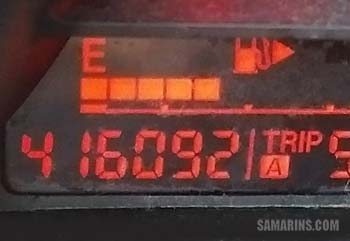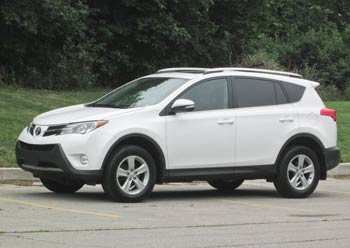What mileage is OK for a used car?
By Vlad Samarin Updated: February 18, 2024
Let's explore some key factors to consider when evaluating the mileage on a used vehicle.
1. Engine Type Matters
Cars with simple, non-turbo engines tend to last longer than those with turbo engines. Turbo engines are more complex and will require more maintenance and repairs over time, so keep that in mind when looking at cars with higher mileage.2. Consider Repair Costs
When buying a used car with high mileage, think about how much it'll cost to fix if something goes wrong, especially with the engine or transmission. If you're paying a lot for the car and then have to spend even more on repairs, it might not be worth it in the end. Check out prices for a used enigne or transmission for the vehicle you want to buy. For example, If a used transmission costs over $3,500 just for the part, it's not the vehicle you want.3. Maintenance is Key
A well-maintained car can last a long time, but one that's been neglected might not. Make sure to check the maintenance records and look for signs of regular servicing. A lack of maintenance can shorten the life of any vehicle, no matter how many miles it has.4. Watch Out for Rust
If you're buying a car from an area where they use salt on the roads in winter (also known as the Salt Belt), be extra careful to check for rust, especially on the underbody and frame. Even if the engine seems fine, excessive rust damage could make the car unsafe to drive.5. Do Your Research
Want to know how long a particular car can last? Do some research online. Look for examples of the same make and model with high mileage – if you find several with hundreds of thousands of miles on them, that's a good sign that the car has the potential to last a long time. Check out the reliability ratings.6. Lower Mileage for Newer Vehicles
Lower mileage is particularly important for relatively new vehicles. For example, if you're buying a one-year-old car with 40,000 miles, consider that you'll only have 20,000 more miles until the powertrain warranty runs out. In this case, it may be worth paying a little extra for lower mileage. Additionally, if you plan to sell or trade the car in a few years, lower mileage can help retain its value.Summary
The mileage is important if you are buying a relatively-new used car. If the car you want to buy is cheap, then the mileage is secondary to the mechanical condition of the vehicle and the potential cost of future repairs. We have seen many vehicles with over 220,000-250,000 miles. This Mazda 3 has 416,092 km and still running.
This Mazda 3 has 416,092 km and still running.Reserching the particular vehicle that you are interested in will help you make the right decision. Check out our Used Car Reviews.
Read Next:
Buying a Used Car: 10 Common Mistakes to Avoid
How to inspect a used car
How to check an engine in a used car
Signs of automatic transmission problems when test driving a used car
Pros and cons of turbo engines
Pros and cons of the CVT transmission
Signs of a collision repair, rust or paint job when buying a used car
Buying a Used Car: 10 Common Mistakes to Avoid
How to inspect a used car
How to check an engine in a used car
Signs of automatic transmission problems when test driving a used car
Pros and cons of turbo engines
Pros and cons of the CVT transmission
Signs of a collision repair, rust or paint job when buying a used car
